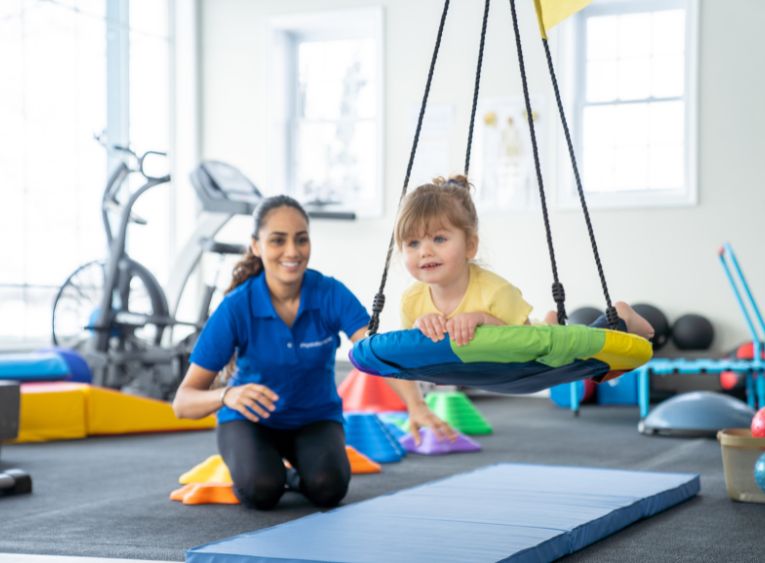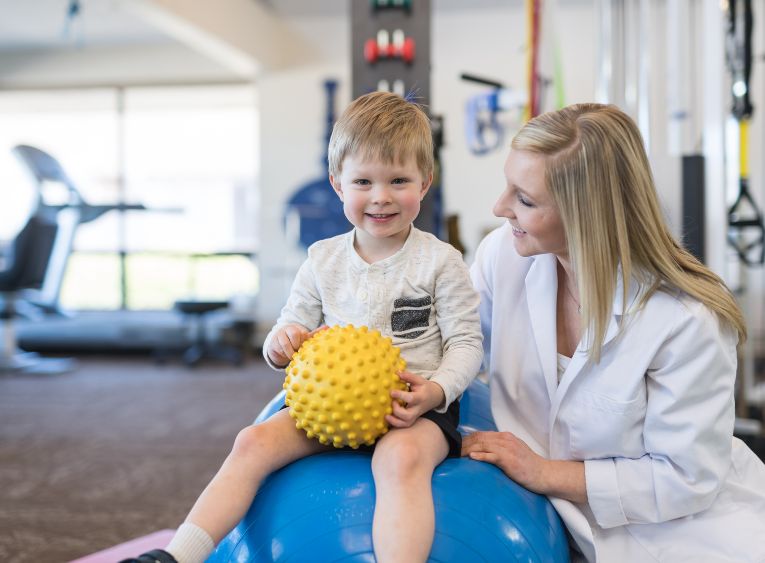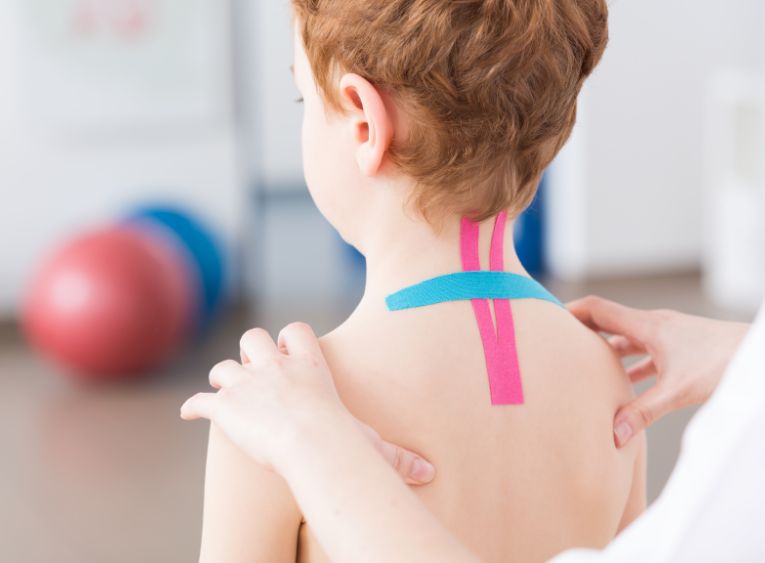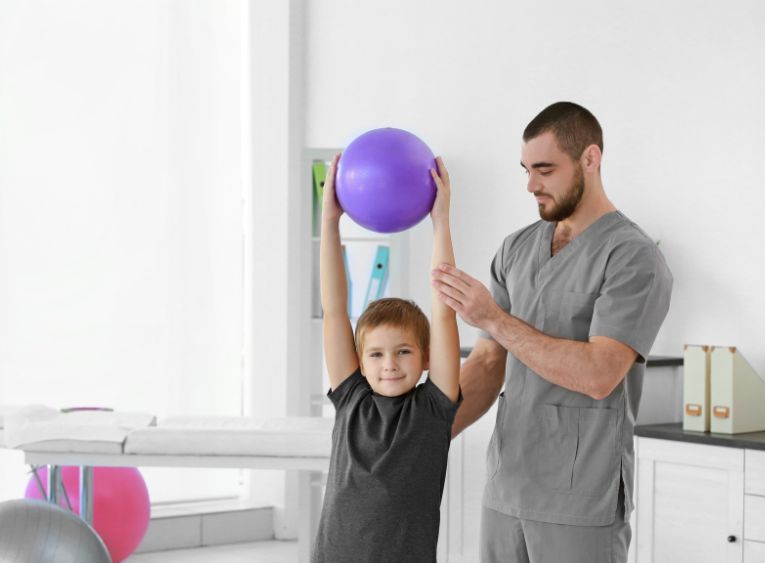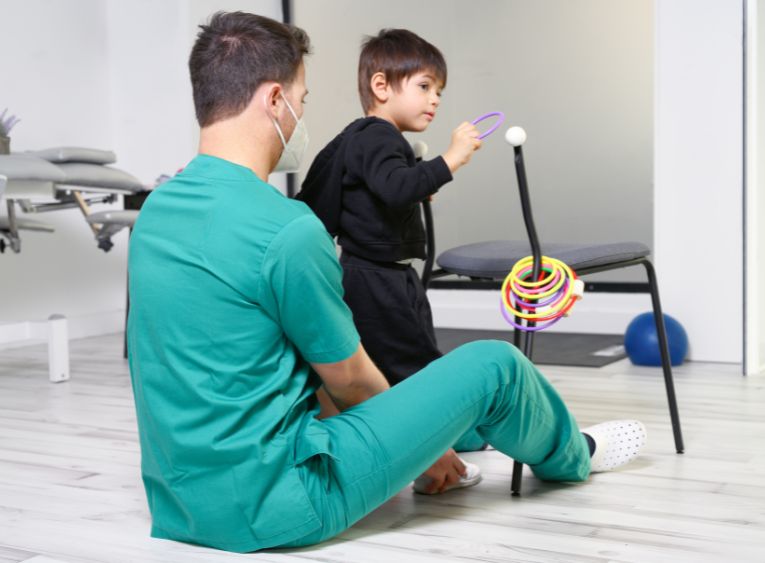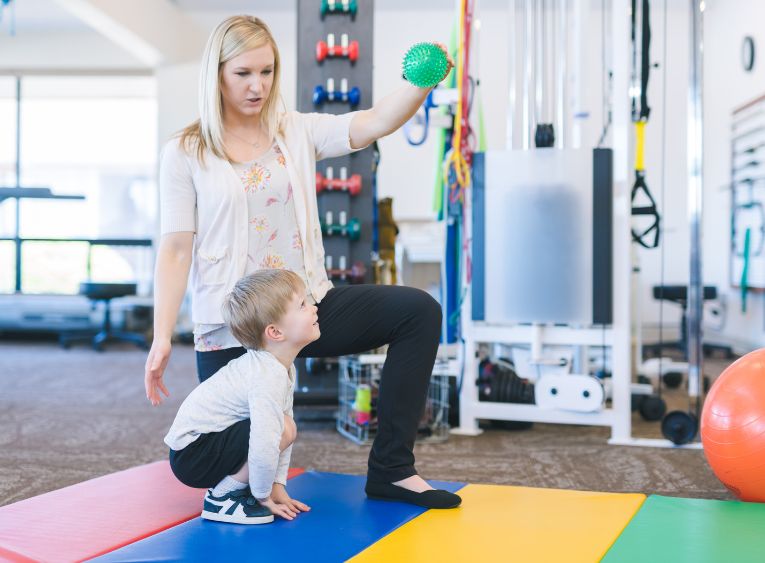Abnormal Muscle Tone in Children
Muscle tone refers to the level of tension present in the muscles. Muscles are continuously in a slight state of contraction, allowing us to maintain and control upright posture while resisting gravity. An imbalance in muscle tone—either too much tension (hypertonia) or too little (hypotonia)—can lead to movement difficulties and other challenges.
At Perfect Balance, we provide physiotherapy for children experiencing:
- Hypotonia (low tone)
- Hypertonia (high tone)
Hypotonia
What is Pediatric Hypotonia?
Hypotonia is characterized by an abnormal decrease in muscle tone. Normal muscle tone, regulated by the central nervous system, is sufficient to resist gravity while allowing for free movement. When a child has low muscle tone, their muscles cannot sustain a normal static contraction, leading to a “floppy” appearance. Hypotonia can impact gross and fine motor coordination, balance while sitting, and participation in everyday activities.
Symptoms of Hypotonia:
- “Floppy” appearance
- Significant muscle weakness
- Limited or no head control
- Mobility and posture issues
- Challenges with speech and breathing
- Ligament and joint laxity
- Poor reflexes
- Lethargy
How Physiotherapy Can Help with Hypotonia
Physiotherapy aims to improve muscle tone and control in children with hypotonia. Since muscle tone is an involuntary response, therapy can modify muscle responses through sensory integration techniques, which stimulate the muscles with sensory information. This enhances the brain’s ability to recognize changes in muscle length and initiates muscle contractions.
With ongoing treatment and practice, muscle responses can become more consistent, leading to improved efficiency in low-tone muscles. Therapy may also focus on strengthening weak muscles and practicing affected movements. If posture is impacted, core stability exercises and control over large muscle groups will be emphasized to help the child better manage their body position.
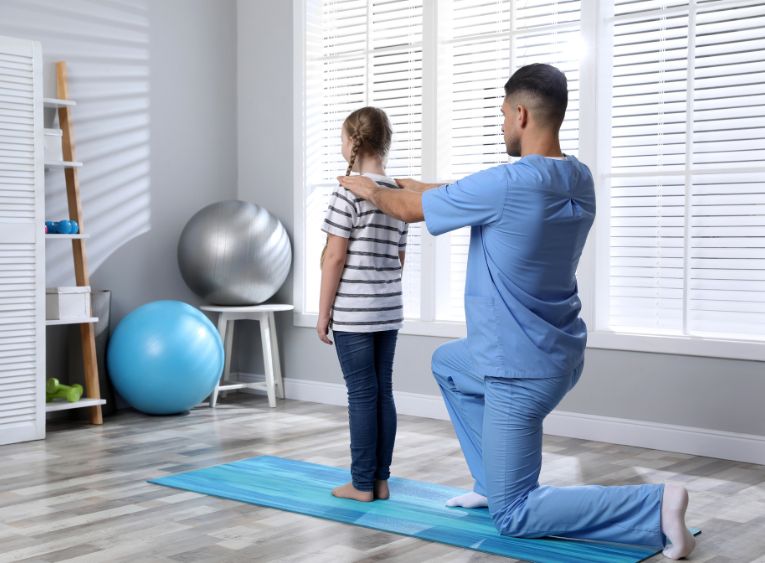
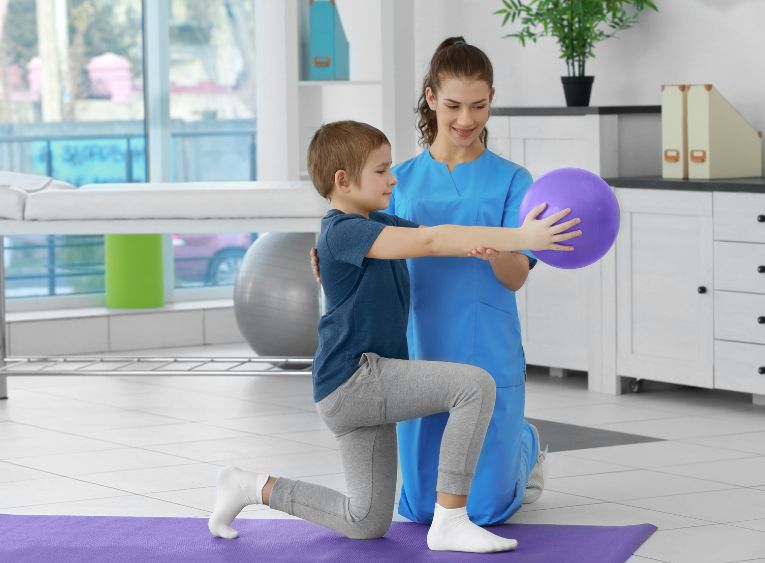
Hypertonia
What is Pediatric Hypertonia?
Hypertonia is characterized by an abnormal increase in muscle tension. This condition reduces a muscle’s ability to stretch, potentially leading to contractures and a decreased range of motion.
Normal muscle tone, controlled by the central nervous system, is necessary for maintaining posture and functional movement. Physiotherapy employs various treatment strategies to reduce hypertonia and improve functionality.
What Causes Hypertonia in Children?
Hypertonia can result from disruptions to the nerve pathways in the central nervous system responsible for regulating muscle activity. Damage or injury to these pathways interrupts signals from the brain, leading to abnormalities in muscle tone. Hypertonia is commonly associated with conditions such as cerebral palsy, stroke, or severe head or spinal cord injuries, and it may also be related to spasticity and dystonia.
Symptoms of Hypertonia:
- Loss of function
- Decreased range of motion
- Muscle rigidity
- Spasticity
- Joint deformities
- Tenderness or pain in affected muscles
- Rapid muscle contractions
- Involuntary crossing of legs
- Fixed joints
Symptoms can vary significantly in severity and presentation, depending on the location of damage within the brain or spinal cord.
How Physiotherapy Can Help with Hypertonia
- Postural Management: Treatment focuses on relaxing the child’s muscles to promote a more natural posture, counteracting the effects of muscle contraction and tightness.
- Stretching Program: Stretching exercises can lengthen contracted muscles, enabling the child to move their limbs more freely and comfortably.
- Orthotics: Custom orthotics can complement stretching programs by positioning limbs correctly, ensuring that the right muscles are stretched even when the child is relaxed.
- Facilitating Normal Movement: Therapy will include practicing the movements required for everyday activities, helping to improve the child’s functional capabilities while addressing tension and contractures.
Request an appointment to support
your child’s functional skills and daily living abilities.
Our Pediatric Physiotherapy center in Abu Dhabi is dedicated to enhancing motor skills, sensory processing, and
overall independence, empowering children to engage more confidently and effectively in everyday activities!
Schedule a consultation with Perfect Balance Pediatric Physiotherapy today and
take the first step toward a more independent and fulfilling life for your child

